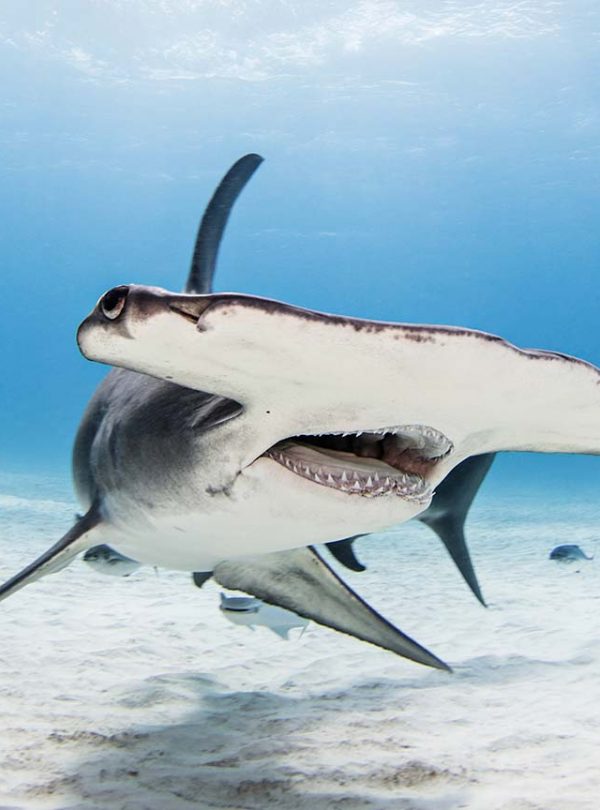Illegal overfishing is destroying one of the richest fishery resources in West Africa and threatening thousands of nesting sea turtles.
-
Species at Risk
Blackchin Guitarfish (CR), Atlantic Humpback Dolphin (CR), Common Guitarfish (EN), Timneh Parrot (EN), Green Turtle (EN)
-
Carbon stored
34,320,000 mT *
*(metric tons of CO2 equivalents) -
Partner
Partenariat Régional pour la Conservation de la zone côtière et Marine en Afrique de l’Ouest (PRCM)
-
330,000 Proposed Acres Conserved by
Designation
-
Project Cost: $2,058,901
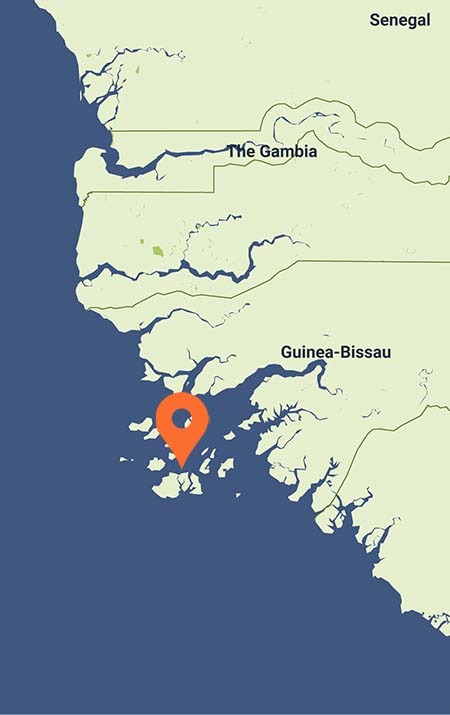
330,000
Illegal overfishing is destroying one of the richest fishery resources in West Africa and threatening thousands of nesting sea turtles.
-
Species at Risk
Blackchin Guitarfish (CR), Atlantic Humpback Dolphin (CR), Common Guitarfish (EN), Timneh Parrot (EN), Green Turtle (EN)
-
Carbon stored
34,320,000 mT *
*(metric tons of CO2 equivalents) -
Partner
Partenariat Régional pour la Conservation de la zone côtière et Marine en Afrique de l’Ouest (PRCM)
-
330,000 Proposed Acres Conserved by
Designation
-
Project Cost: £1,647,120

330,000
The Bijagós Archipelago off the coast of Guinea-Bissau comprises 88 separate islands and islets. The area between high and low tides holds an extensive network of channels that support intact, old-growth mangroves, seagrass beds, mudflats, and sand flats. This rich, intertidal treasure nurtures healthy populations of sea turtles, sharks and rays, marine mammals, and one of the richest fisheries in West Africa.
The abundance of coastal and marine life in the Bijagós Archipelago is threatened primarily by overfishing by foreign fishermen. Illegal fishing camps on the edge of the archipelago put increasing outside pressure on fisheries, and sport fishing is another contributing threat. Marine surveillance has not been able to stop these harmful intrusions. Rainforest Trust and our partner, Partenariat Régional pour la Conservation de la zone côtière et Marine en Afrique de l’Ouest (PRCM), will support government designation of two new Marine Protected Areas (MPA), protecting over 330,000 acres of marine area.
Header photo: Green Sea Turtle, by Antoine Marchal
Explore the Bijagós Archipelago
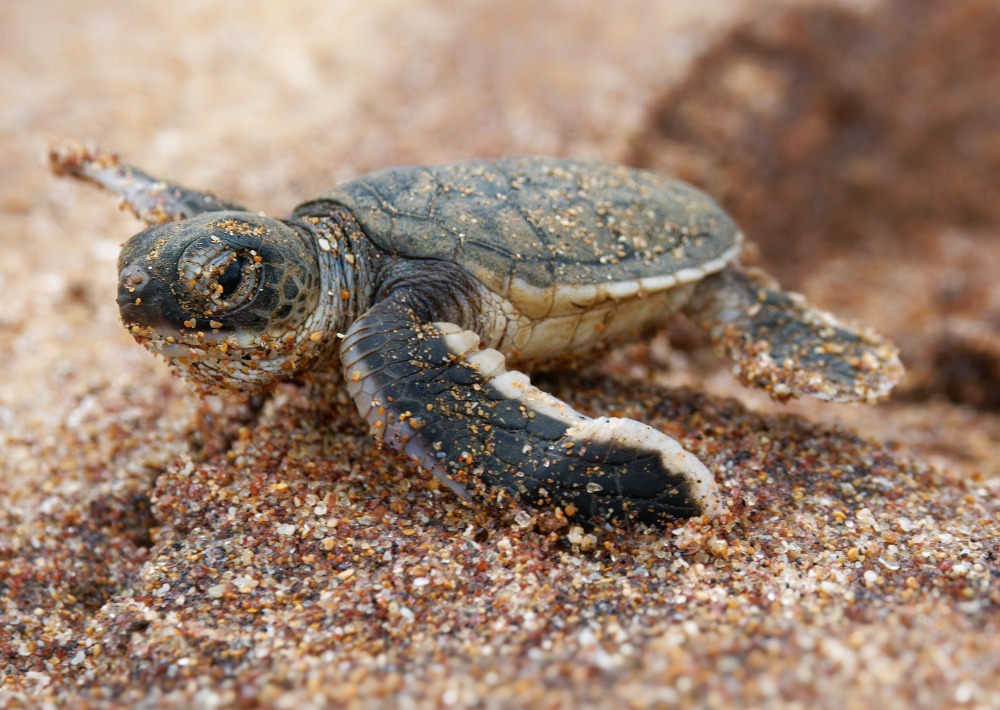
Green Sea Turtle Hatchling, by Martin Pelanek
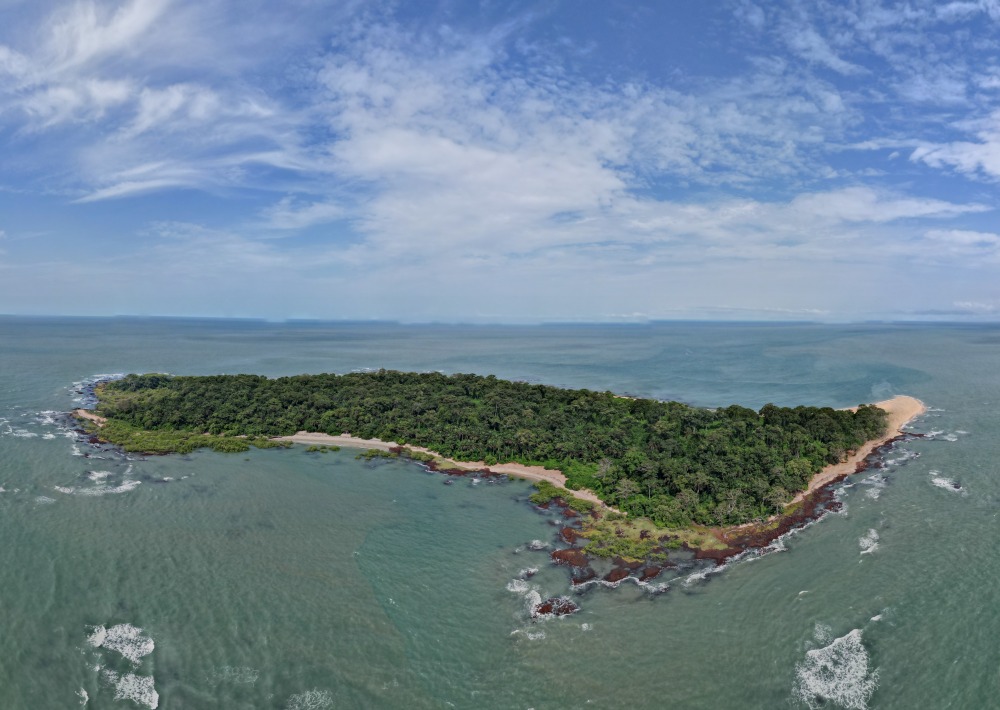
The Bijagós project area in Guinea-Bissau, by Antoine Marchal
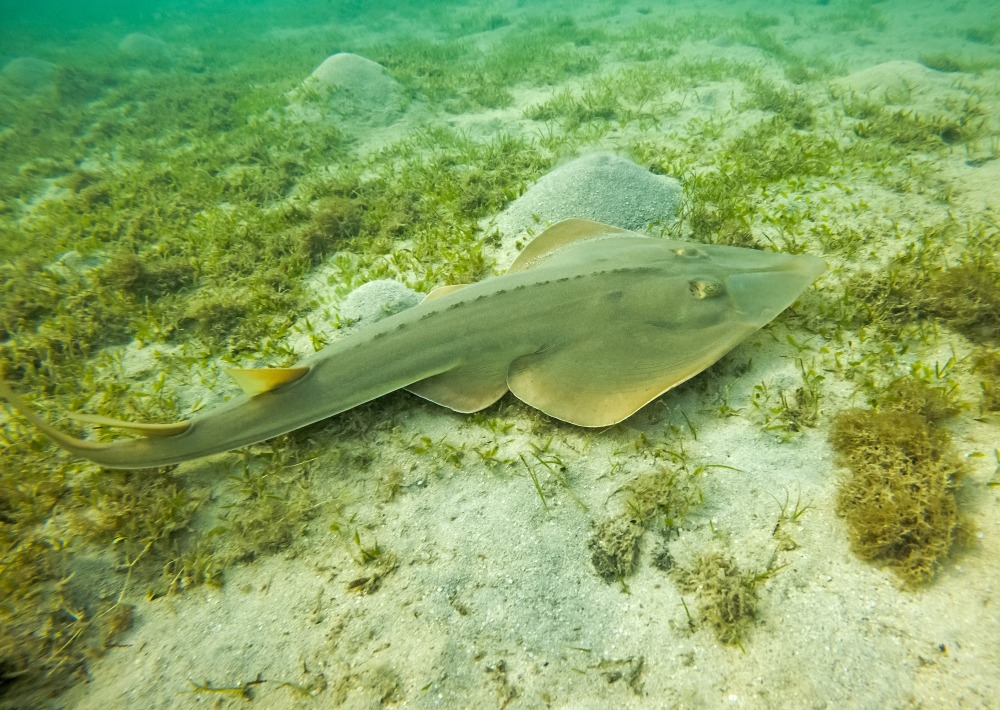
Common Guitarfish, by Andreas Wolochow
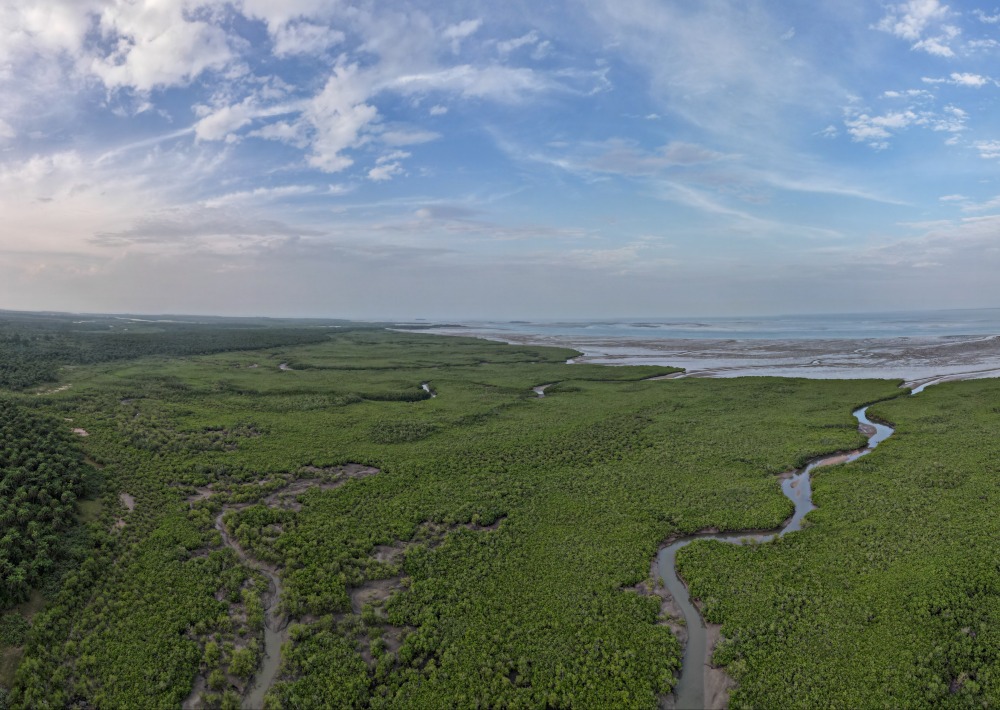
Mangroves of Bijagós in Guinea-Bissau, by Antoine Marchal
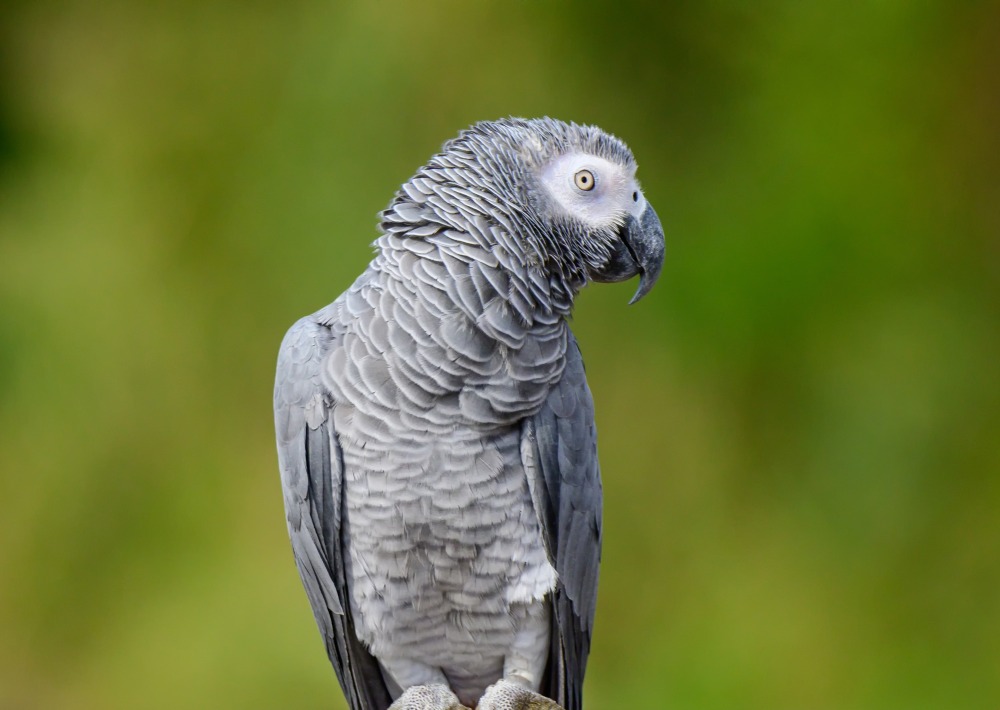
Timneh Parrot, by Ploypemuk
Scientists have estimated as many as
Endangered Green Turtle nests are laid annually on Poilão Island.
Secure a Safe Haven for Sea Turtles, Sharks, Rays, Marine Mammals, Fish, and Migratory Birds
The pristine beaches of the Bijagós Archipelago serve as the nesting site for five of Earth’s seven species of sea turtles, all of them threatened. Green, Hawksbill, Olive Ridley, Loggerhead, and Leatherback turtles migrate hundreds of miles to reach the archipelago. Its waters are crucial habitat for critically endangered sharks and rays, including the Scalloped Hammerhead, Largetooth Sawfish, Blackchin Guitarfish, and Lusitanian Cownose Ray. These waters also support Vulnerable African Manatee and Critically Endangered Atlantic Humpback Dolphin.
The archipelago is the third most important site in the East-Atlantic flyway, with concentrations of almost a million migratory wading birds, including Common Ringed Plover, Curlew Sandpiper, Sanderling, Red Knot, Common Redshank, Grey Plover, Bar-tailed Godwit, and Eurasian Whimbrel.
Save Sacred Sites and Coastal Livelihoods for Traditional Communities
Exploitative tourism and natural resource extraction threaten the biodiverse forests on the islands that are sacred to the Bijagós’ traditional communities. As part of the broader conservation strategy for the MPAs, local fishermen and residents will participate in a management process to create well-defined fishing zones and regulations that meet their subsistence and ceremonial needs, with terrestrial zoning to protect intact habitats and sacred sites.
LEARN MORE ABOUT THIS PROJECT >>
Conservation work is critical, challenging, and can be costly. We work hard to ensure we raise only the funds needed for each project. In the rare case we raise more money than needed or a project comes in under budget, excess monies will be transferred to the Conservation Action Fund. This fund supports our important conservation work throughout the tropics.
Project Modifications
Rainforest Trust conducts extensive research and due diligence on each of the projects that we support, so that once a project is offered for public support we believe it will succeed. We work closely with our project implementers, offer support, and regularly monitor their progress. Given the nature of the work, projects may not progress exactly as intended and may be unable to meet all objectives. To respond dynamically to the needs of our project implementers and the realities of the landscapes in which they operate, Rainforest Trust expressly reserves the right to modify a project as it deems necessary, provided that donor intent is honored by ensuring that that the original project objectives are diligently pursued and that project funds continue to benefit the landscape and species identified in the project overview. Project modifications that we may need to make in certain circumstances include the specific project implementer, the size of the landscape to be protected, the type of protection to be afforded to the landscape, and the development of sustainability mechanisms.
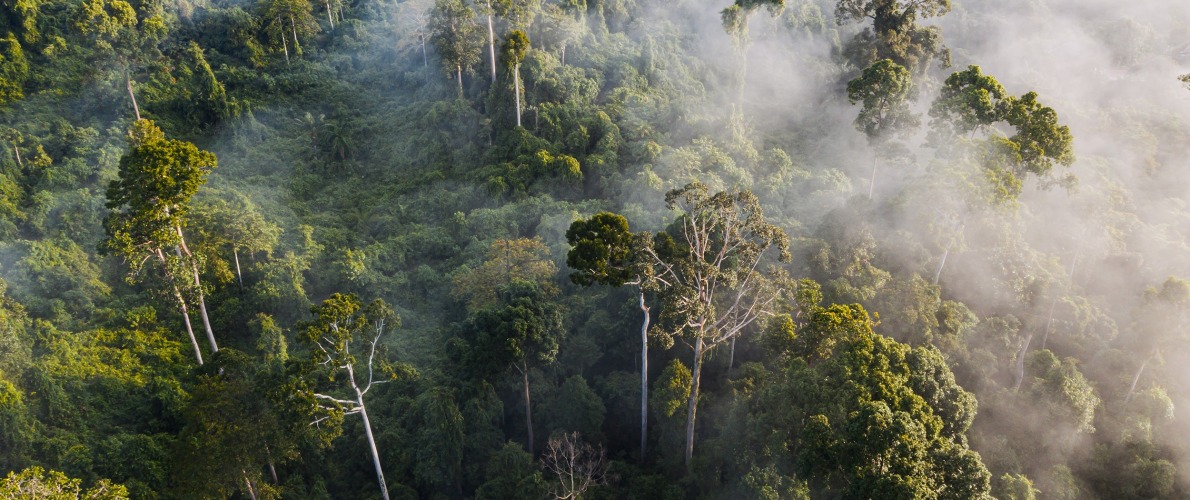
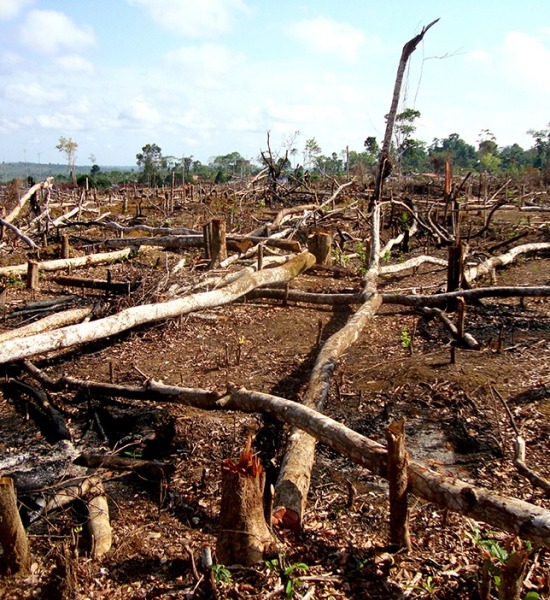
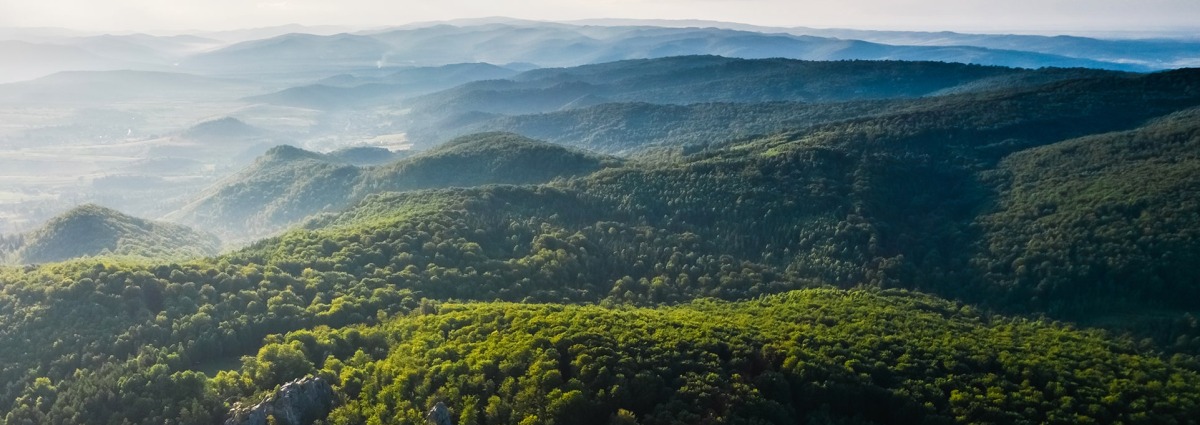
Partnering to Save Rainforest
Our partners’ ability to work with their governments and build strong connections with local communities ensures the successful implementation of our projects.
Learn More About This PartnerLearn More About This Partner
